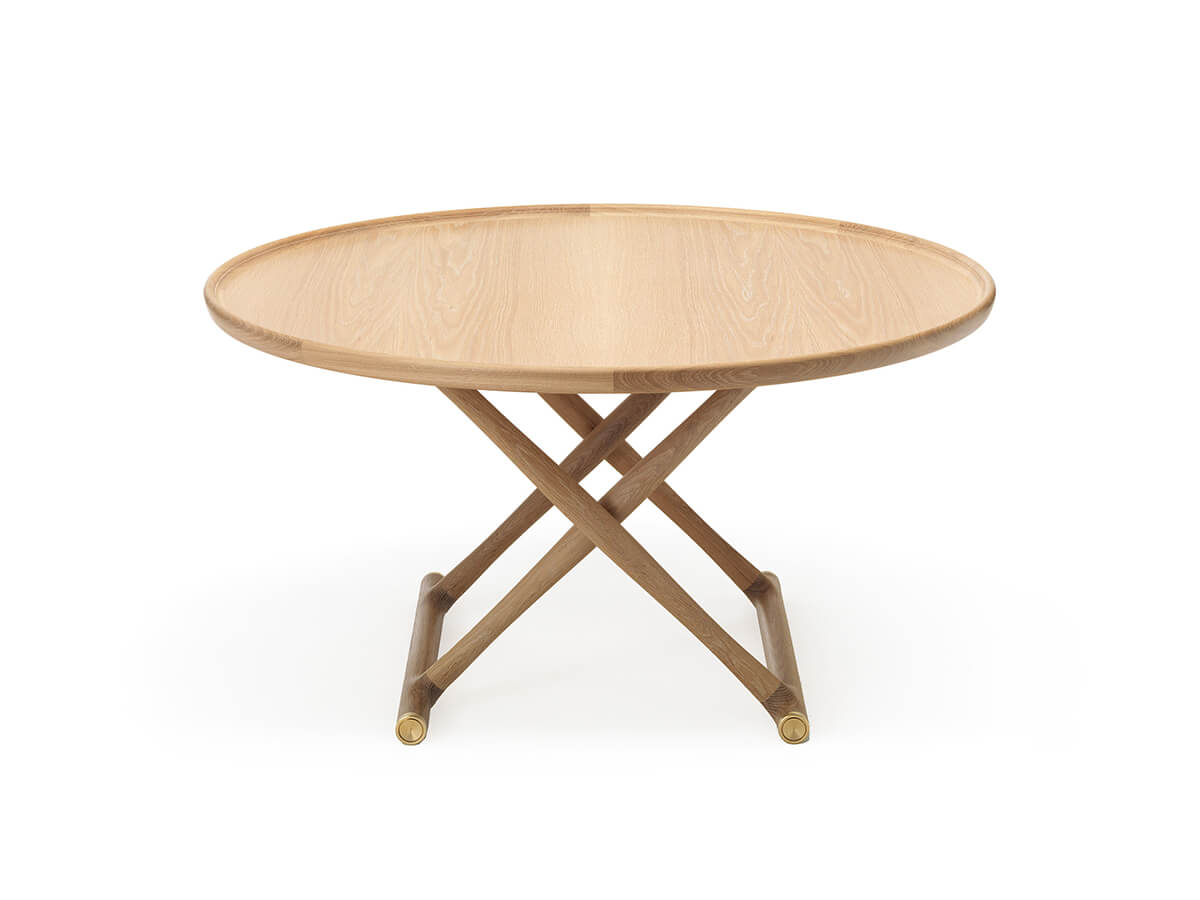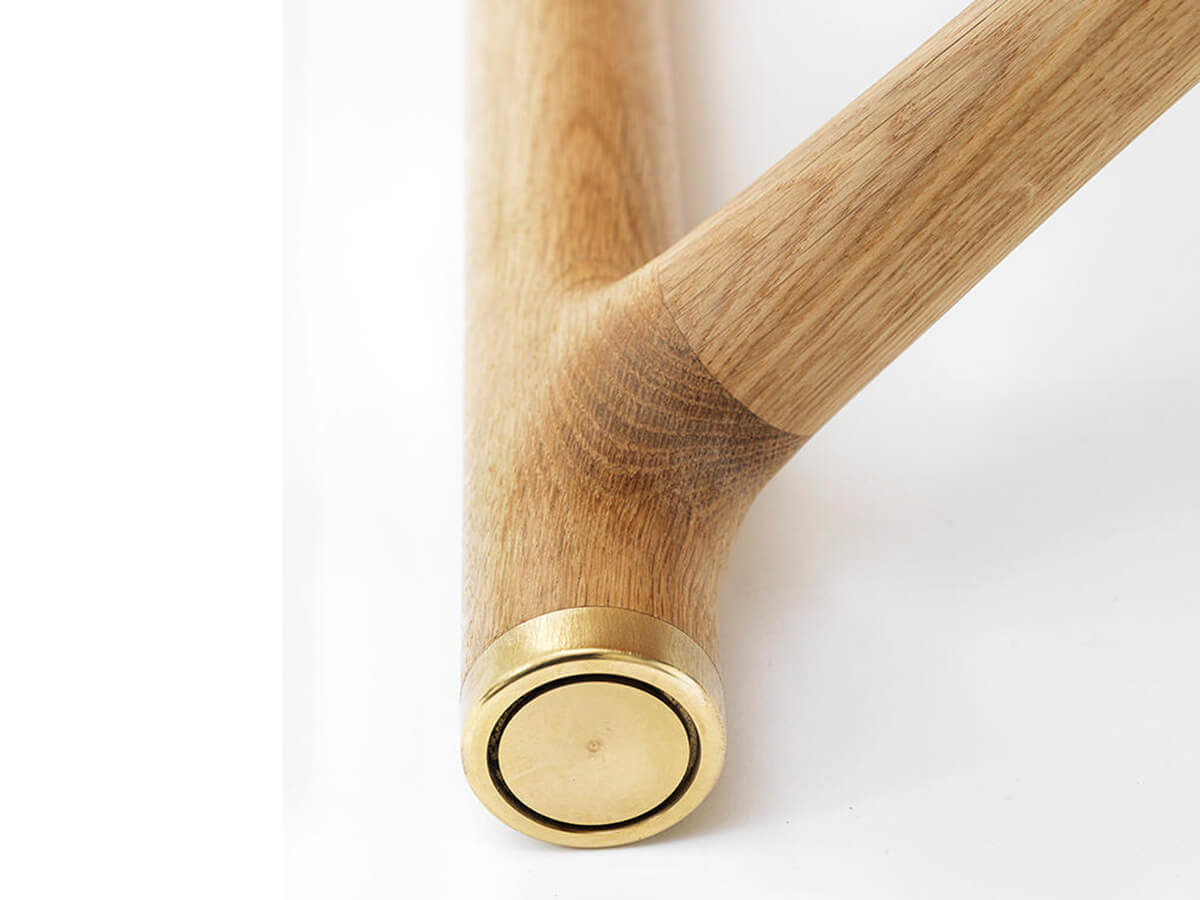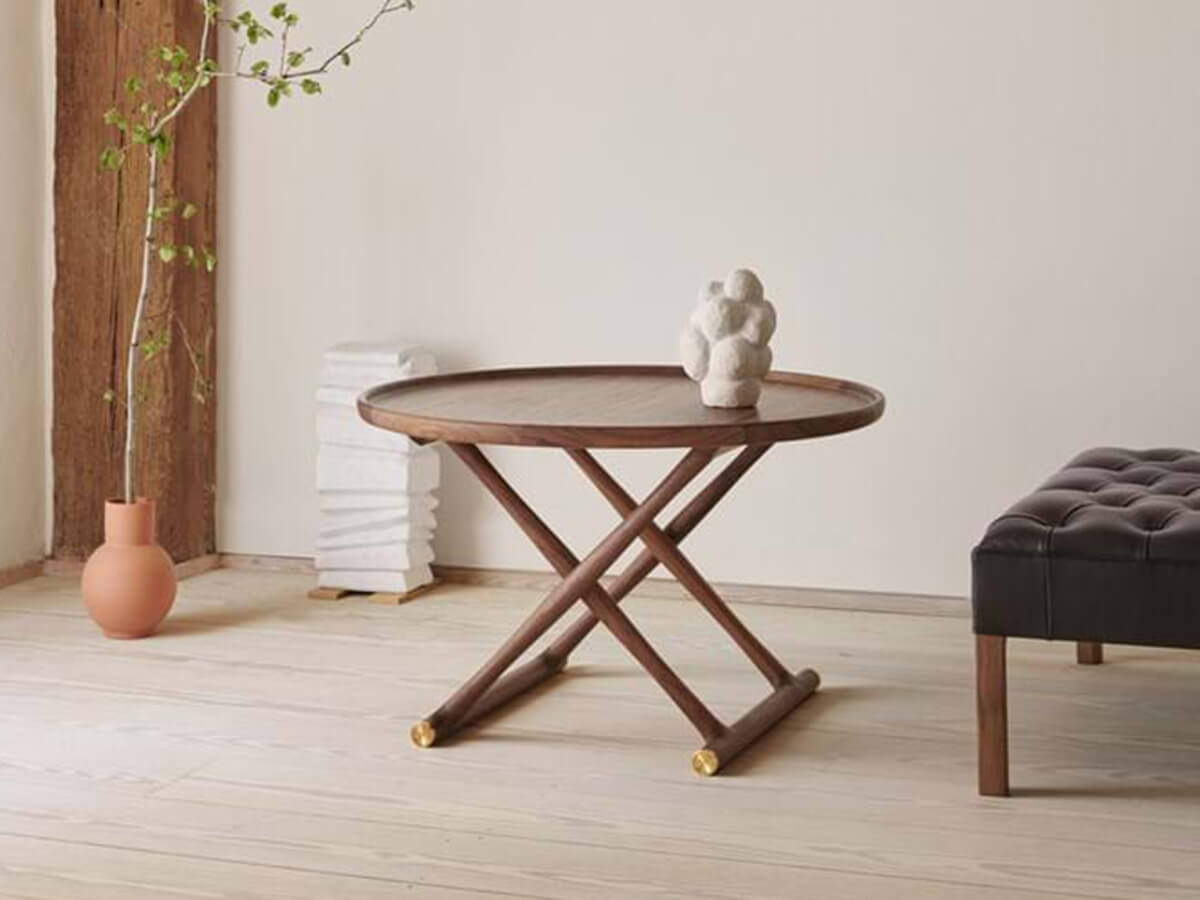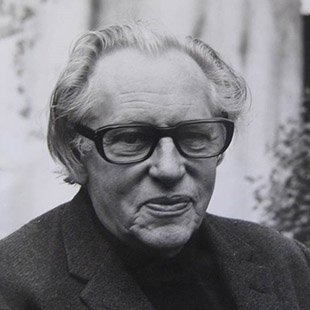Carl Hansen & Søn
ML10097 Egyptian Table
Price starting from € 3.229,00*
*Price valid for the version in Ø 85 cm in oil oak finishing (cod. ML10097).
A surprising underground connection exists between the great Danish designer of the twentieth century and the traditional crafts of Ancient Egypt: inspired by the numerous archaeological finds that came to light during the twentieth century, many great Danish cabinetmakers were fascinated by the archetypal yet still very current forms of certain discoveries and have decided to replicate them in their works. This is the case of Mogens Lassen, whose ML10097 Egyptian Table - now produced by the Carl Hansen & Søn brand - is inspired by a model found in the 1920s in the famous tomb of Tutankhamon. A small brass clip hidden under its top allows you to fold it in a simple and practical way, thus making it a piece of furniture that is as fascinating as it is functional.
Ø 85 x H.52 cm
Available also in Ø 100 cm
Salvioni Design Solutions delivers all around the world. The assembly service is also available by our teams of specialized workers.
Each product is tailor-made for the personal taste and indications of the customer in a customized finish and that is why the production time may vary according to the chosen product.
To discover the full range of services available, visit our delivery page.
Personalize your request
Sizes
Select
Top and Frame
Select
Select
Carl Hansen & Søn was founded in 1908 on the Danish island of Funen, under the aegis of the eponymous cabinetmaker Carl Hansen. Since its foundation, the small cabinetmaking workshop has experienced rapid success due to the high quality craftsmanship of its furniture as well as the foresight of its founder, responsible for the establishment of many fruitful collaborations with world-renowned designers.The growth of Carl Hansen & Son was deeply influenced by the long-term collaboration with one of the greatest designers of all time: Hans J. Wegner. This creative synergy began in 1949, when Holger Hansen, son of Carl Hansen, attempted the fate with the unknown designer. From that moment,Wegner designed a series of successful furniture, including the now iconic Wishbone Chair.Read more
Designed by
Mogens Lassen
Mogens Lassen (1901-1987) was a Danish architect belonging to the current of functionalist Modernism, also appreciated for his activity as a designer. A shy figure far from the spotlight, Lassen was born into a family of artists and cultivated a passion for architecture from an early age. His brother Flemming Lassen will also have an important career as an architect; however, the two brothers maintained independent trajectories. His style was made above all of sharp angles and decisive geometries and was greatly influenced by the thought of Le Corbusier, whom he had the opportunity to know personally during a youthful period spent in Paris without however having the opportunity to work with him due to his limited knowledge of the French language. Lassens trained in several important Danish architectural firms, in particular that of Tyge Hvass where he remained from 1925 to 1933 before starting his own business in 1935. As an architect he worked mainly in the residential sector, designing buildings and apartments, but also remembered for having curated the installations of Den Permanente for decades, the Copenhagen trade fair that played a key role in the process of spreading Danish-style furniture throughout the world. Lassen also designed various furnishings and objects, among which his Kubus candle holder was particularly popular. In more recent years most of his creations were reissued by the By Lassen brand, founded in 2008 by his grandchildren and great-grandchildren in order to preserve their legacy and then merged into the Audo Copenhagen cllections. One of his most famous pieces, the Egyptian Table, is instead re-proposed by Carl Hansen & Søn.
Read more



